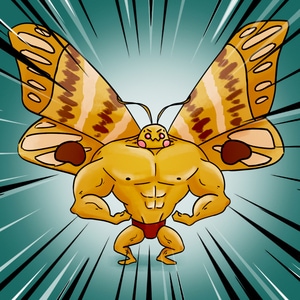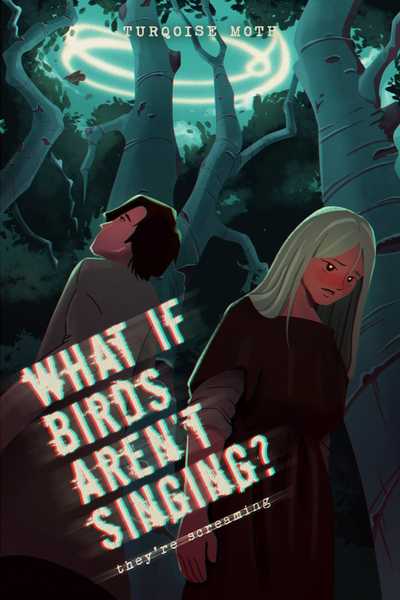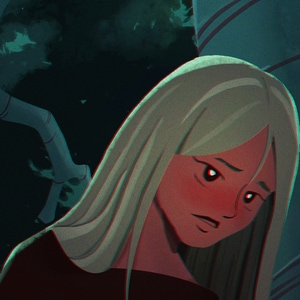People knew the Country of Alkemi for two things. The first thing was the people’s friendliness and the country’s acceptance of almost everyone who’d like to move in and settle there, and the other was the country’s infamous policy of banning no art. While other countries allow one or two arts in their region, Alkemi allowed every art existed to be studied and practised there. It was the only place where people could learn anything they wanted, from sorcery to alchemy, and even necromancy. The country banned no art, and so naturally, scholars and geniuses began to fuse all of the basic arts, creating new, curious art. They call it: Diablery.
While magic conjures tricks and manipulates energy, alchemy transmutes and bends elements, and necromancy summons and controls deceased being’s soul, diablery summons souls to be inserted into vessels that they had transmuted from the earth, which then given the gift of magic so they can be of use to their master—diablery is the art of creating a new creature that lives, but not breathing; that has a physical body, but can feel no physical pain. The creature, you see, makes an excellent soldier and slave.
The world was outraged at the new art when it was first introduced. They called the art demonic and unnatural, and collectively banned the art, leaving the art no place outside of Alkemi.
“It’s a soul summoned from necromancy! We all know that necromancy is not demonic and there is nothing natural about any of the arts!” The diablery master argued, “Diablery is just like any art. We, the masters, had no ill intention when we created the art. This art is simply innovation, a creation to advance mankind! Every art that we—that you use was created to help mankind having an easier lif—” but the council closed the door on his face, leaving him no choice but to return to Alkemi in a fit of rage.
The Diablery Master rallied the public the moment he arrived in Alkemi. He told them about how intolerant, close-minded, and arrogant the councils were, about how they thought they were better than Alkemians and their art.
“Diablery is the art of Alkemians,” he said in front of the royalties and the public, “Diablery is our culture, and they dared renounce our culture.”
The Alkemians murmured amongst themselves, shaking their head discontentedly to one another as the Master watched their rage in delight. He looked up to the Prime Minister who was watching by the open window of the government building, and yelled, “Sir Prime Minister, would you really stay still and let the world mock us?”
The Prime Minister straightened his suit as he glanced at the Master. “What do you suppose we do?”
“I say we show them!” The Master yelled, “We show them the superiority of our art!” followed by the cheer of the crowd.
The Prime Minister blinked, his gaze sharp and incriminating, but the Master stood tall and proud, staring back at the Prime Minister with fury in his eyes. The Prime Minister nodded at the man after a while, cocking his head to invite the Master inside the building.
Just like that, the Master’s speech had inspired a war.
The war went on for a hundred years, with Alkemians winning more than half the time. With their creatures, they killed millions of their enemies, and with more death of their enemies, more souls were summoned and made into new creatures. If one of the diablery masters was killed, they would also be made into one of their creatures. Death meant nothing to the Alkemians, and they feared no death. The Alkemians were unbeatable.
That is until one necromancer found a loophole in their art.
Sera, a general from a necromantic country so small, it is but a dot on the world map called Tofana, noticed how the creatures still have a mind that works a little like a normal, living, human being. Though for the most part their mind is filled by their master’s orders, they still own some kind of freedom in regards to their action, just like a Necromancer’s ghost.
Souls can be broken. If a soul has no desire to come back to the living world, then there is nothing that they can do to summon them. To break a soul is to use their speech to push one into losing a desire to stay in the living world. Hateful, resentful, bitter, and sometimes, shaming, guilting, and threatening words are used to do so. To push one soul into losing any desire of staying means to do it constantly, linking every bad thing to their existence, terrorizing them into thinking that there is no escape other than embracing death in its purest form—in the still, unbothered “life” in the astral world. So that’s what she did for a week straight. She sent her ghosts to do the deed for her while she hid between the trees and bushes, whispering to them on what to say to the creatures.
Her plan worked, and after a week, half of the creatures in the Alkemian’s camp are limp and lifeless. She learnt that vessels of creatures with a broken soul can’t be used twice to etch another soul to it, and they were discarded immediately while the masters produced more and more creatures.
After weeks of experimenting, Sera concluded that breaking the soul is the most effective way against them. So, she wrote letters to every country about her experiment, hoping that it might help them end the war.
At that time, not a lot of countries allowed necromancy to be practised in their area. It was considered wicked as the art is about summoning the dead, and its only abilities being inflicting fear and driving people to insanity. The art was heavily frowned upon, so Sera knew that her experiment report will not be useful to them if they don’t even have any necromancers, to begin with. So, she sent some necromancers to aid other, non-necromantic countries. In return, she also asked for reinforcement, since her country is small and in need of more people who specialised in any art other than necromancy. Though the creatures could be broken by necromancy, the masters and the living soldiers could not.
A hundred and two years after the war started, the Alkemians were finally defeated. There were no more Alkemian-colonised countries, and every country was in charge of themselves, free of their invader once more. The art of diablery was banned, every book ever written about the art was hidden in a secret library in Tofana, by Sera’s tomb.
The Tofanese general died in the hands of the enemy, an alchemy-transmuted blood spear straight through her head. Her soul was attempted to be summoned by every necromancer in the world, but she never answered. It was clear that the general had no intention of returning.
As for the country of Alkemi, the people paid for their crime. No art other than alchemy is allowed to be practised in Alkemi, and diablery masters were executed in front of the Alkemian public to set an example. The country also must pay for every single damage they had caused in every country.
The vibrant and lively country of Alkemi a little over a hundred years ago had disappeared. It is now a dark, sad place to live, littered with petty crimes driven by poverty. The people live, but they are dead. They barely look any better than the diablery creatures they used to be so proud of.











Comments (0)
See all